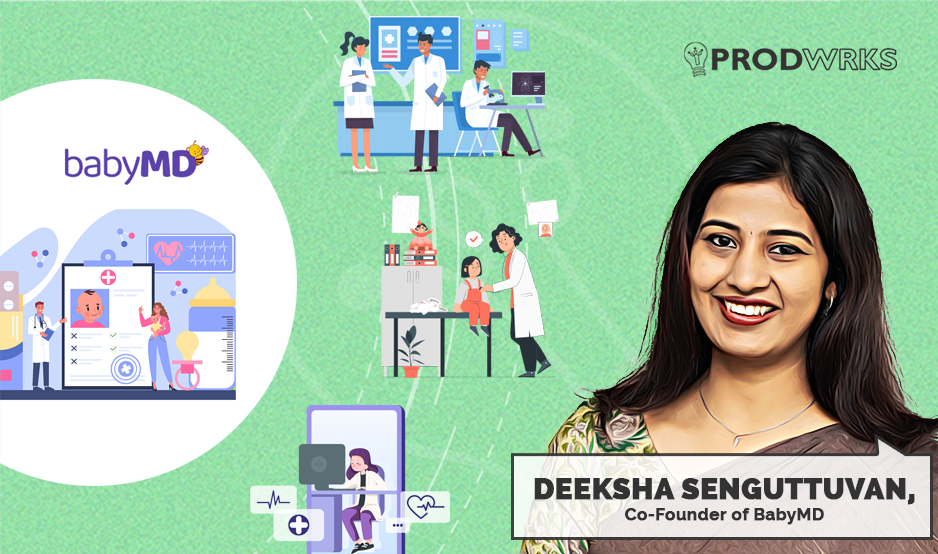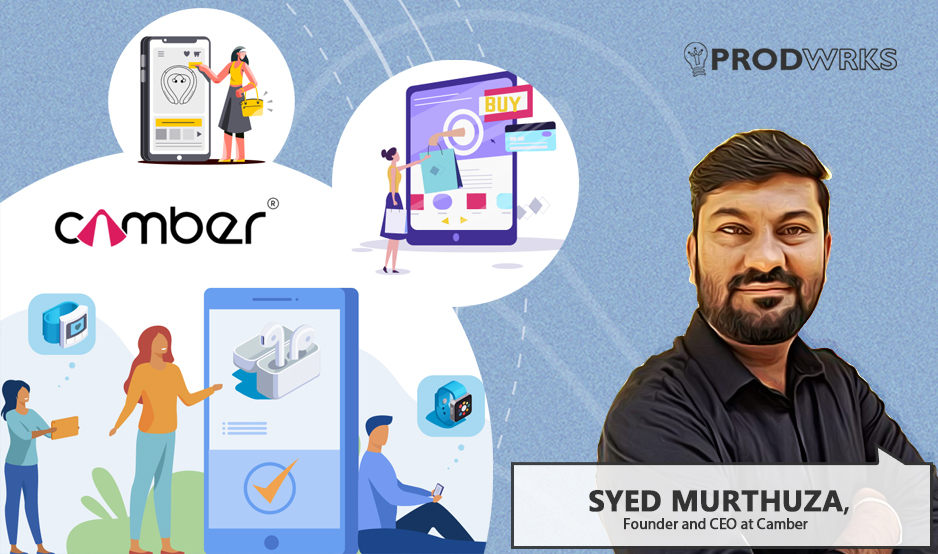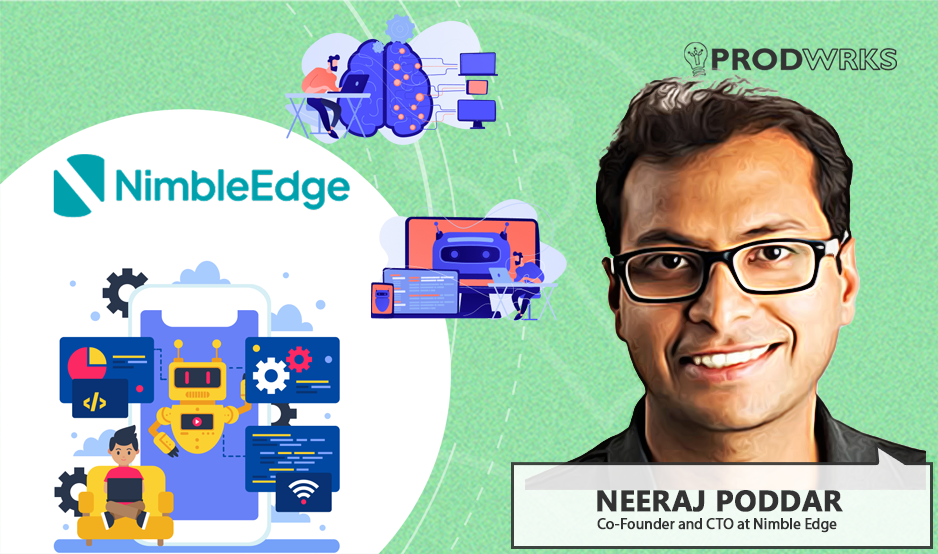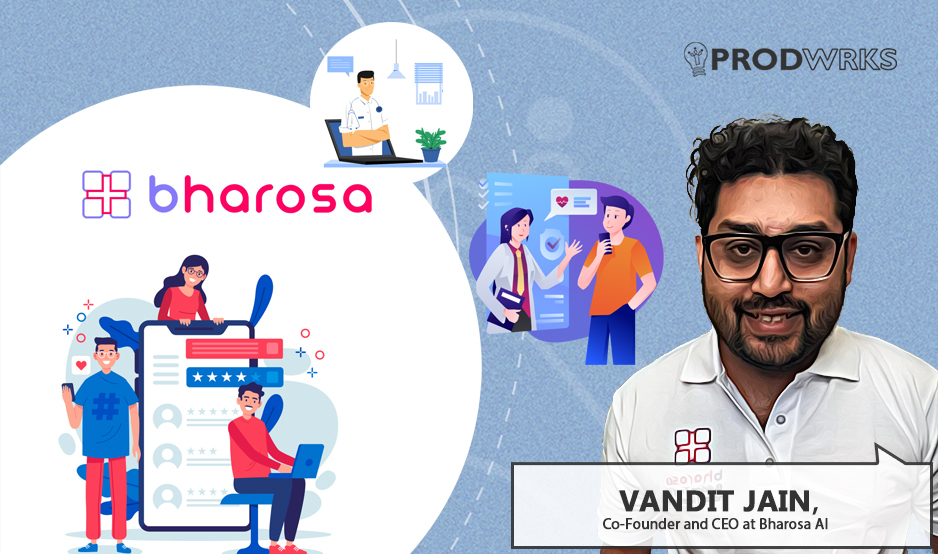
Raising a newborn in highly urbanized cities like Bengaluru and Chennai can be isolating for parents lacking traditional family support. While hospitals provide specialized care and independent clinics offer familiarity, traditional pediatric practices often lack a structured system that combines medical expertise and empathetic care delivery for modern parents.
“Parents don’t just need a doctor. They need guidance, continuity, and a place where their concerns are heard and addressed,” says Deeksha Senguttuvan, co-founder of BabyMD.
Founded by Deeksha and Hrishikesh Thite, BabyMD currently operates six hyperlocal pediatric centers in Bengaluru. Deeksha explains that they are “recreating the village that it takes to raise a child” by providing convenient access for parents to routine check-ups, vaccinations, developmental assessments, and specialist consultations through a deliberately and carefully designed system.
For pediatricians, BabyMD offers a consistent stream of patients without the constraints of traditional hospital shifts. Doctors can focus solely on outpatient consultations and patient care, while BabyMD handles patient flow and follow-ups.
Deeksha emphasizes that she isn’t chasing fleeting app trends or AI-driven hype to improve pediatric care. “I am not a health tech company. I’m a healthcare company!” she states emphatically. Instead, BabyMD strategically leverages technology as an enabler to foster trust and address the multifaceted needs of contemporary parents.
We explore how Deeksha navigates the challenge of scaling a pediatric business built on trust, personalized attention, and genuine care in an environment increasingly dominated by impersonal digital solutions.
The Need for a Clinically Validated Parenting Ecosystem
BabyMD’s approach to pediatric care stems from a unique convergence of experiences: Deeksha’s previous stint leading digital strategy at Kauvery Hospitals, her exposure to the world of pediatrics through her father, Dr. Senguttuvan, a practicing pediatrician in Trichy, and a deep understanding of the anxieties that often burden new parents.
She explains that parents today are often overwhelmed with advice from numerous sources – family doctors, hospitals, and informal networks like friends and family.
Deeksha notes, “If a relative offers parental advice at a family gathering, no one accepts it blindly anymore. New parents today are digital natives. They ask, ‘Is this evidence-backed? Am I doing the right thing?’"
How BabyMD Ensures Parents “Do the Right Thing"
BabyMD has a cluster of six pediatric centers in Bengaluru that provide a comprehensive suite of services for structured, end-to-end, clinically-backed pediatric care:
- Pediatric Consultations: Addressing routine childhood ailments, administering vaccinations, and conducting thorough well-baby check-ups.
- Developmental Milestone Assessments: Meticulously tracking a child’s cognitive, motor, social, and emotional development, identifying potential delays early on.
- Therapy Services: Providing targeted speech therapy, occupational therapy, and behavioral therapy for children requiring specialized intervention.
- Super-specialty Consultations: Establishing partnerships with leading pediatric specialists to offer a broad spectrum of specialized care within the convenience of BabyMD’s facilities.
- Integrated Digital Solutions: 24/7 doctor chat service (currently evolving with AI) and remote consultations offer accessible and qualified medical advice. BabyMD acknowledges that it’s important to get the right balance between digital and physical consultation to provide holistic care.
BabyMD’s hyperlocal pediatric centers are strategically positioned within a 10-minute travel radius of residential areas in South Bengaluru to maximize accessibility.
"Parents prefer visiting clinics that are close to where they stay. While they might be willing to travel further for diagnostics, perhaps an hour, since it's less frequent, for pediatrics, you need someone local. You need to be able to visit quickly if your child has a fever."
Deeksha also highlights that empathy is at the core of their pediatric practices.
For example, in traditional settings, a child having trouble breastfeeding is clinically labeled as a “breastfeeding failure”. Deeksha says “These clinical terms can feel unsettling for parents. Our clinicians are trained to be empathetic and we ensure our doctors use language that is supportive and understanding.”
Finding Customers & Building Loyalty
BabyMD’s customer acquisition strategy revolves around establishing a local presence and fostering trust within the community. That is why follow a hyper-local model clustering their clinics around Southern Bengaluru.
Deeksha explained that initial customer growth was driven by bottom-of-the-funnel strategies, including partnerships with preschools and apartment societies to conduct health check-up camps.
“Choosing a pediatrician for your child is influenced by the society. If one person starts recommending, then everyone starts going to that one doctor. So it's a very word-of-mouth behavior.”
Word-of-mouth referrals are complemented by search engine marketing (SEM) on Google to drive awareness and capture immediate demand. As brand awareness grows, the strategy shifts to Facebook (Meta) advertising for mid-funnel engagement, ensuring BabyMD stays top of mind when parents need pediatric care.
To enhance customer loyalty, BabyMD offers a membership program that provides discounts on products and consultations. However, Deeksha stresses that the most effective retention strategy is consistently delivering a positive and personalized experience for parents visiting BabyMD’s clinics.
“Our entire focus has been on offering the right experience within the clinic, and we've seen strong retention as a result… One positive experience is all it takes for parents to automatically think of BabyMD when their child falls ill again,” she says.
Key Metrics for Measuring Success of Pediatric Practices
BabyMD generates revenue through services including pediatric consultations, vaccinations, developmental therapies, medicines, and lab tests. Deeksha explains that pediatrics is a high-frequency, low-value business. The model relies on long-term patient relationships rather than focusing on one-time procedures.
"It's a low AOV (average order value) business. Each visit doesn’t generate high revenue, but patients keep coming back. We are already seeing 50% of our patients returning, and they’ll stay with us until they’re 18. That’s what I’m banking on."
Key metrics tracked by BabyMD:
- Average OPD (Outpatient Department visits) per Day: A key indicator of patient volume and clinic utilization. In the last month, BabyMD has seen around 1100 OPDs and trending towards 1500 OPDs this month. Over the past 6–7 months, the platform has onboarded approximately 4,000 new patients.
- GMV (Gross Merchandise Value) per Customer: Tracking how much revenue each acquired customer generates and whether they are utilizing multiple services.
- Customer Acquisition Cost (CAC) vs. Organic Acquisition: Aiming for a higher percentage of customers acquired organically. Currently, 80% of customers come through organic acquisition, reducing reliance on paid marketing.
- Clinic Profitability: Monitoring break-even timelines and revenue per square foot to ensure financial sustainability.
- Three-Month and Six-Month retention: Assessing customer loyalty and repeat visits over time. Deeksha notes that established clinics, running for more than six months, have a healthy ratio of 50% new and 50% returning patients, signaling positive customer retention.
BabyMD's Customer Retention Strategies
BabyMD focuses on retention by ensuring a seamless first-time experience, proactive follow-ups, and continuous engagement through chat support. Parents receive timely vaccination reminders and have access to real-time assistance.
A structured membership program incentivizes return visits by offering financial benefits, including discounts on consultations and products.
“For ₹1,000 a year, parents get 10% off products and 15% off consultations. Raising a child is expensive and this gives them a tangible reason to choose us again," Deeksha explained.
"I can't track month-on-month retention because healthcare is situational. Just because a patient didn’t return this month doesn’t mean I lost them. It just means they didn’t have a healthcare need."
Experiments with Digital Patient Experience via WhatsApp
Deeksha first explored digital solutions for BabyMD by launching a 24/7 doctor-led paid chat service (remote consultations) via WhatsApp. She used Wati, a WhatsApp Business API tool to manage all doctor-patient communications.
“WhatsApp is the best way to connect clinicians with patients as it eliminates the need for downloading an external app. Operationally it was easy to implement and convenient for both parents and doctors,” Deeksha notes.
“Convenience works only when they already know your brand and when they can verify that they are speaking to a real doctor via WhatsApp,” Deeksha explained. “So, one out of ten might agree (for online consultations), but the rest insist on seeing a doctor in person."
“We had to advertise to get every new customer, offer a trial, and then hope they subscribed to the 24/7 WhatsApp service. But in healthcare, trust takes time, and the journey just wasn’t sustainable,” she explains.
Harnessing August AI + WhatsApp for Personalized Engagement
Deeksha, however, is optimistic about the potential of AI to enhance patient engagement and personalize communication. She is currently piloting a WhatsApp-based chatbot powered by August AI, an LLM-based solution capable of providing tailored information and support based on a parent’s previous interactions and unique needs.
“For example, for a seven-month-old child, we usually recommend solid food. But if the parent has indicated that they would continue breastfeeding in a previous interaction with BabyMD, the AI chatbot can automatically provide relevant advice based on the current context, rather than sticking to a predefined script.”
"AI works best when focused on a specific problem. That’s why AI in radiology has been successful, solving a well-defined issue. Pediatric care, where parents ask frequent, routine questions, is another area where AI can be extremely useful."
Behind the Scenes: Selecting an Operational Tech Stack for Clinics
Beyond patient-facing solutions, BabyMD integrates multiple third-party solutions for their operational needs – Clinicia for EHR and clinic management, Knowlarity for cloud telephony, LeadSquared for CRM, and so on.
Speaking about digitally managing health records, Deeksha notes that India lacks a universal EHR solution like Epic in Western markets. “While platforms like Eka Care work well for individual practitioners, they fall short for multi-service clinics requiring customized patient interactions.”
While not a perfect, out-of-the-box solution, Deeksha shared that Clinicia enabled them to manage BabyMD’s multi-center pediatric practice without requiring a massive investment in custom software development during its crucial early stages.
For business operations, Deeksha initially chose Zoho One which offers a suite of tools like Zoho CRM, Zoho Books, etc., to manage entire business operations, but encountered challenges adapting it to the unique customer journeys in healthcare.
"Healthcare isn’t a single-transaction business. Patients keep returning for different services, and each inquiry needs to be tracked as an opportunity within the system."
Lessons from the Healthcare Trenches
- Immerse yourself in the healthcare journey: Don’t try to build a solution from the outside in. “You have to get your feet wet, you have to enter into healthcare for your health tech solution to make sense,” she advises.
- Understand the “why”: Don’t assume that technology can automatically replace existing processes. “We need to understand why something exists the way it does. If technology can augment it, great. But if technology is coming to replace it and undermines the purpose of the whole thing, then it’s not going to be adopted,” she cautions.
- Focus on augmenting human interaction: Recognize the critical role of empathy and human connection in healthcare. “It should be human-first, not digital-first,” she recommends.
Opportunities in Pediatrics: Trends and Prediction
Parenting needs and trends are evolving, but the way healthcare providers deliver care has remained largely remained static. But it’s all about to change, says Deeksha.
She shares emerging shifts in pediatric healthcare that founders can capitalize on:
- Nutrition and Wellness: Parents are becoming more mindful of ingredients, avoiding sugar, palm oil, and additives. “The health product space is evolving quickly,” says Deeksha, as clean-label, nutrient-dense options gain popularity.
- Behavioral Health Services: Autism, ADHD, and speech delays are being diagnosed more frequently, driven by better awareness and lifestyle shifts.
“We’re seeing a rise in behavioral health companies,” Deeksha explains, citing long working hours, excessive screen time, and reduced social interaction as key factors. AI and virtual avatars are emerging as tools to enhance therapy for children. - Physical & Social Development: With unstructured play declining, parents are turning to kids’ gyms and group programs. “It takes a village to raise a child, but today, that village is becoming a paid service,” notes Deeksha.
As healthcare and pediatrics evolve, Deeksha spots opportunities for founders to innovate in nutrition, behavioral support, and structured engagement, which she says will shape the future of pediatric wellness.




